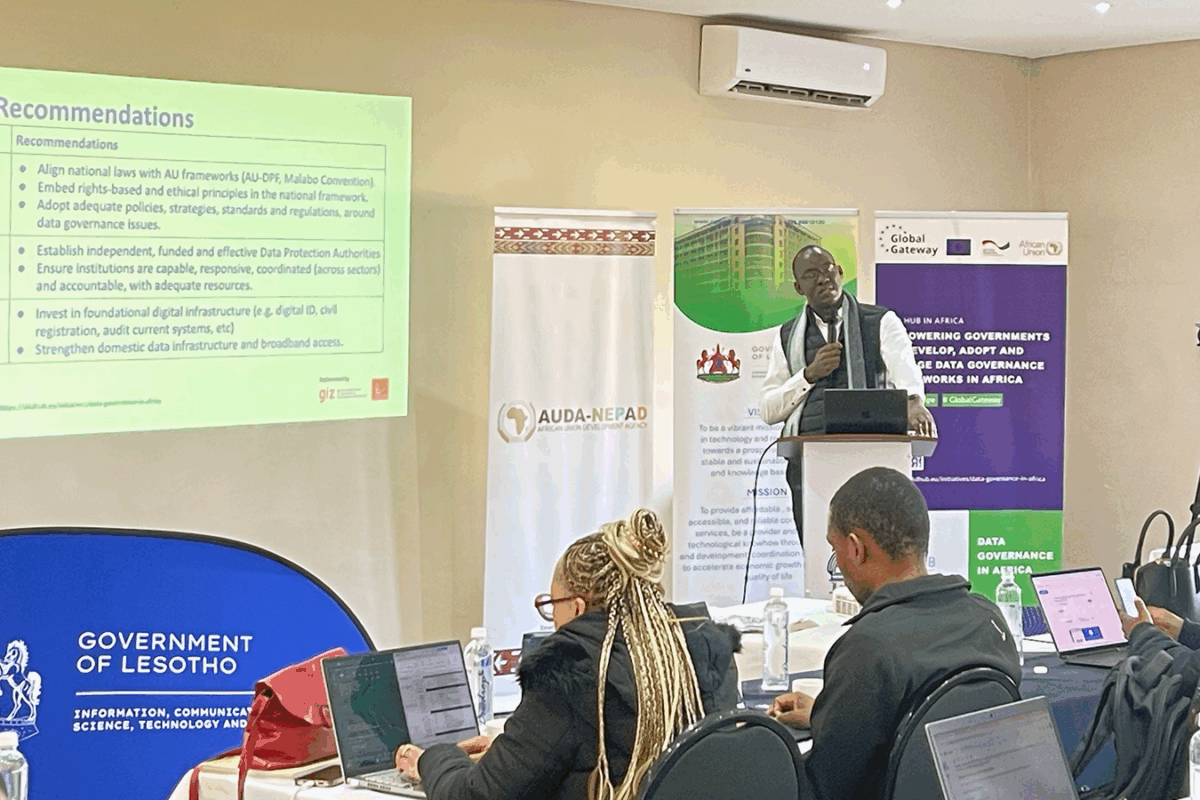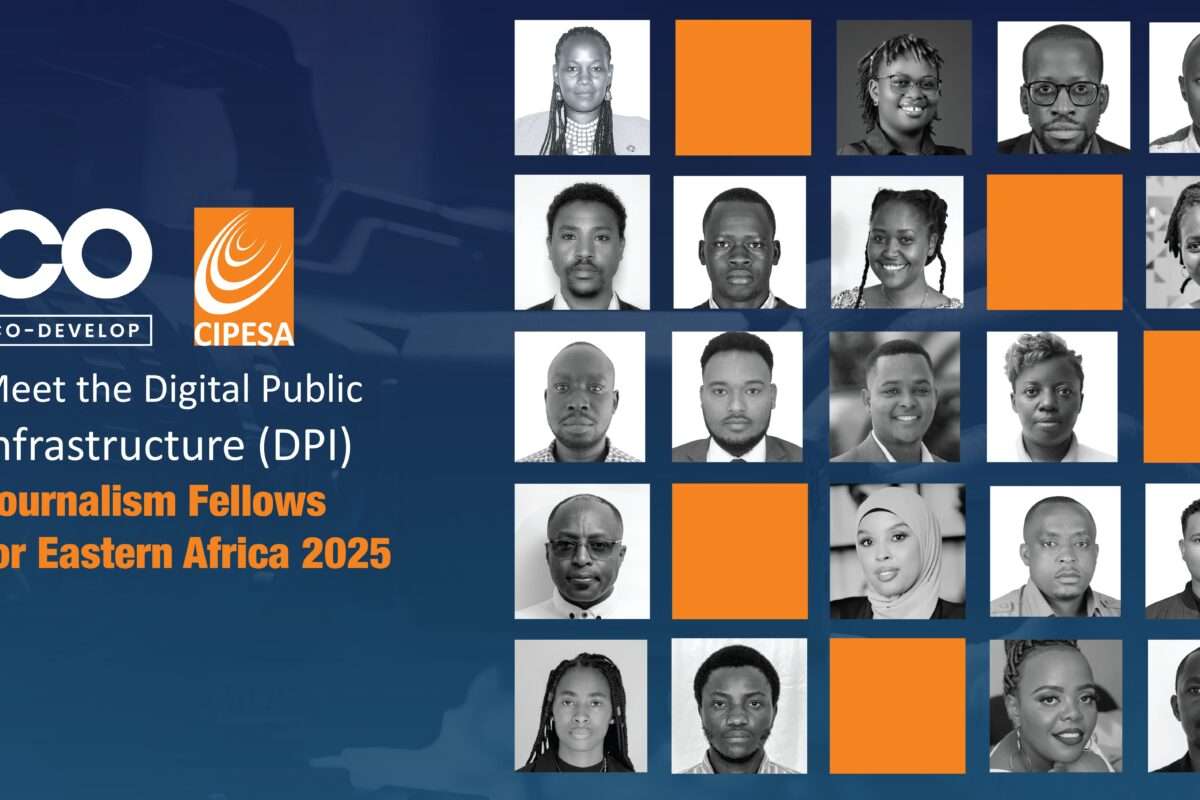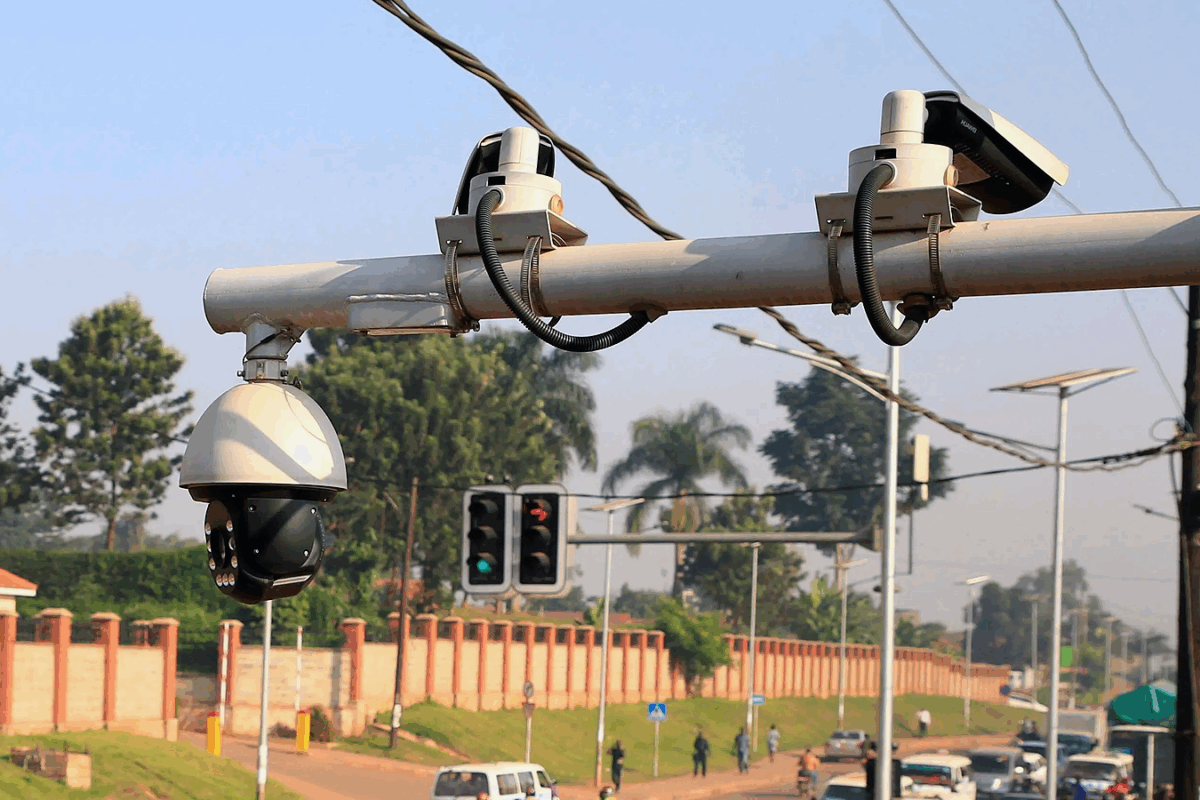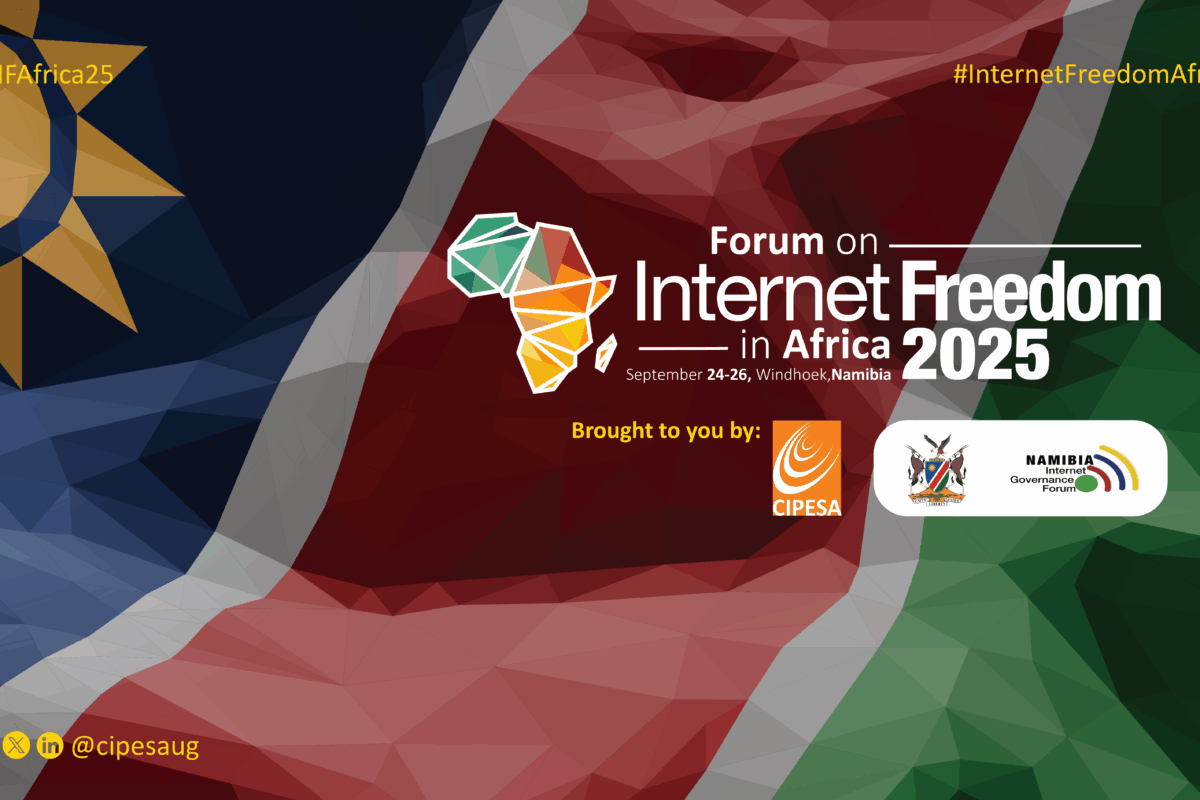Canary Mugume is an investigative journalist, and prime time news anchor at NBS Television whose work sits at the intersection of journalism, technology, and public accountability. With over a decade of experience, he has used digital media to shape public discourse on governance, online freedoms, and access to public services. Through his platforms including NBS Television, Canary leverages storytelling to make complex digital policy issues accessible and impactful. His investigative reporting and online influence as the most followed active media personality online in Uganda today, have driven national conversations around public policy, civic technology, governance and inclusive digital transformation.
Lesotho Charts a Progressive Path on Data Governance
Patricia Ainembabazi |
From July 28-31, Lesotho’s highland capital of Maseru buzzed with the energy of a data governance sprint. Government officials, academics, civil society, and the private sector assembled for an intensive workshop convened by the African Union Development Agency-NEPAD and AU-GIZ with support from the Lesotho Ministry of Information, Communications, Science, Technology and Innovation (MICSTI), the Collaboration on International ICT Policy for East and Southern Africa (CIPESA) and the Kenya ICT Action Network (KICTANet).
The gathering drew over 60 participants with a shared proposition: get everyone on the same page about what good data governance should look like in Lesotho and how to achieve it. The workshop charted a pathway for Lesotho to domesticate the African Union Data Policy Framework (AUDPF), which was adopted by the African Union in 2022. The framework provides guidance to Member States on building harmonised, rights-respecting data governance policies that support digital transformation, innovation, and secure cross-border data flows.
Lesotho’s efforts to domesticate this framework come at a crucial time, as the country seeks to modernise its digital policy environment and position itself within the continent’s increasingly data-driven economy. These efforts, including the workshop, demonstrate Lesotho’s political will to align with continental digitalisation and data governance blueprints such as the AUDPF and to build an inclusive digital future.
Lesotho’s Minister for Information, Communications, Science, Technology and Innovation, Nthati Moorosi, stated that the various workshop sessions aimed to “instill more understanding on data governance for clear domestication of the [AUDPF] policy framework.” Sessions saw participants introduced to key concepts such as data as a public good, the importance of ethics and accountability, and the need for harmonised cross-border data policies. Case studies from across Africa helped illustrate how sound data governance could unlock value in sectors such as agriculture, health, and education.
CIPESA led practical sessions during which participants examined Lesotho’s Data Protection Act and the draft Data Management Policy (2025) in relation to key African instruments, including the AUDPF, the Malabo Convention, the African Continental Free Trade Area (AfCFTA), and the Digital Transformation Strategy for Africa. Participants noted areas of alignment between the national and continental frameworks but also identified gaps in the national data governance framework.
As such, effort went into mapping out where Lesotho is already aligned with the AUDPF and which specific areas need to be prioritised in revising the country’s legal and policy framework. Recommendations from this mapping exercise included establishing an independent Data Protection Commission, clarifying categories of personal and sensitive data, improving inter-agency coordination, and investing in digital literacy and data privacy skills across the public and private sectors.
The workshop was complemented by a strategic stakeholder survey to assess perceptions on Lesotho’s data governance framework. The survey revealed a minimal understanding of the country’s data governance frameworks. Over half of the respondents stated that existing policies were outdated and unable to address current challenges such as cross-border data flows, cloud computing, and evolving digital privacy threats. Respondents identified digital trade, innovation, health research, and public trust as key benefits of robust data governance. Responses further emphasised the importance of inclusive policymaking, public awareness on data governance campaigns in both English and Sesotho, alongside targeted support for rural and marginalised communities.
By the conclusion of the meeting, participants had agreed on a national data governance strengthening roadmap. With contributions coming from the broad spectrum of participants, who included Princess Senate Mohato Seeiso, through to Principal Secretary Kanono Leronti Ramashamole of the MICSTI, who noted that “data is no longer a by-product of administration but a strategic national asset”, the meeting reinforced the value multistakeholderism holds in digital governance.
Undeniably, no single institution can carry the policymaking load by itself. The real story from Maseru is the multistakeholder collaboration, with the MICSTI anchoring at home, the AUDA-NEPAD and AU-GIZ bringing continental scaffolding, civic and technical communities translating frameworks into practice, and a steady emphasis that data governance has to work for everyone. Ultimately, this process could enable Lesotho to not just catch up with the AUDPF, but to help show what a people-centred, innovation-friendly data ecosystem looks like in the region.
As regional leaders in digital rights and digital governance, CIPESA is committed to providing continued support to Lesotho as it works to reform its policies and institutionalise stronger data governance mechanisms. Our involvement helps to ensure that national efforts are grounded in best practices and aligned with continental and global standards, such as those set by the African Union.
Meet the Next Generation of Journalists Covering Africa’s Digital Public Infrastructure
DPI Fellowship |
The Collaboration on International ICT Policy for East and Southern Africa (CIPESA), in partnership with Co-Develop, is pleased to announce the inaugural cohort of Fellows selected for the Digital Public Infrastructure (DPI) Journalism Fellowship for Eastern Africa following an open call in April 2025.
This six-month regional fellowship aims to cultivate a new generation of journalists with the knowledge and skills to investigate and report on DPI and Digital Public Goods (DPGs). Fellows will participate in specialised training sessions, receive mentorship, and receive financial support to develop and produce impactful stories in diverse formats and languages. The stories will interrogate the development and deployment of DPI and DPGs with a focus on their implications for governance, inclusion, equity, and citizens’ everyday lives.
The fellowship brings together 20 journalists from nine countries (Burundi, DR Congo, Ethiopia, Kenya, Rwanda, Somalia, South Sudan, Tanzania, and Uganda) who work across online, broadcast, and print platforms.
The call in April attracted 214 applications, which were assessed through a rigorous selection process to identify fellows who demonstrated a strong interest and capacity to report on emerging digital public infrastructure issues with clarity, depth, and integrity.
“This fellowship is about more than capacity building. It is about empowering African journalists to shape the public narrative around digital transformation in ways that reflect citizens’ rights, challenges, and aspirations,” said Dr. Wairagala Wakabi, CIPESA’s Executive Director. “We are thrilled to support these pioneering journalists as they lead the charge in demystifying digital infrastructure and holding power to account.”
The launch of this fellowship is significant as the digital transformation agenda of many African countries is evolving. Yet, media coverage of DPI and DPGs remains limited. The fellowship aims to close that gap by building the capacity of the media to cover DPI and DPI in ways that create awareness and informed public discourse on digital governance.
The fellowship is inspired by a similar Co-Develop-funded initiative implemented by the Media Foundation for West Africa (MFWA), which supported fellows to produce over 100 impactful stories that spurred public debate and influenced policy.
At Co-Develop, we believe that sustainable digital public infrastructure requires more than innovation and technology, it demands informed ecosystems. By supporting journalists across nine East African countries, this fellowship helps create a critical layer of engagement and accountability around Digital Public Infrastructure. We’re proud to invest in a future where DPI is not only built, but deeply understood, safeguarded, and shaped by those it serves.
– Desire Kachenje, Senior Investment Principal, Co-Develop
Follow the Fellows’ Stories
Stay engaged with the work of the DPI Journalism Fellows throughout 2025 using the hashtags #DPIJournalism #DPIFellows2025. Follow their stories and insights via CIPESA and Co-Develop’s online platforms, and join the conversation on how digital public infrastructure is shaping the future of governance and inclusion in Africa.
Read more about the DPI Journalism Fellows 2025 here.
Digital Public Infrastructure in Africa: A Looming Crisis of Equitable Access, Digital Rights, and Sovereign Control
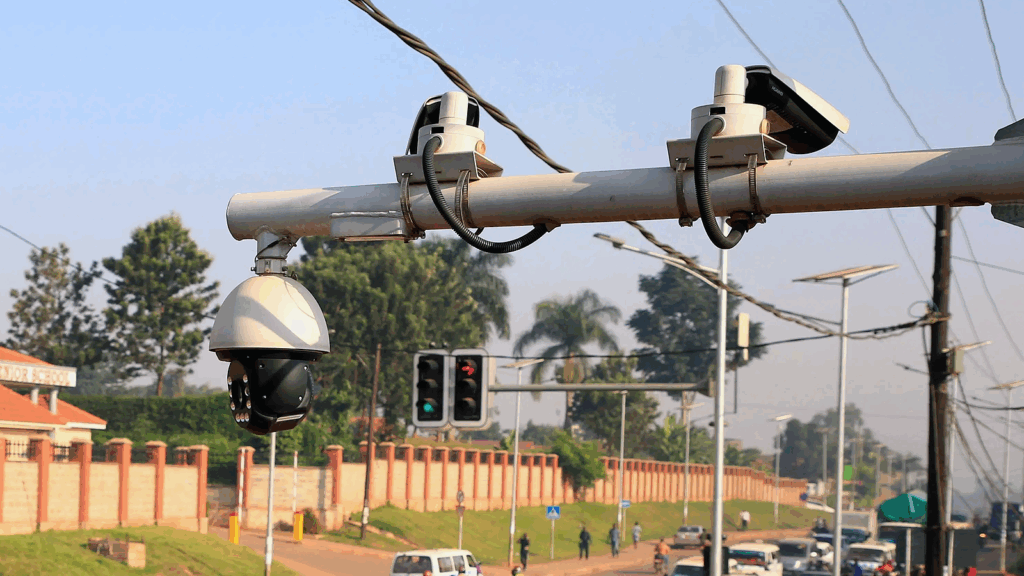
By Brian Byaruhanga
In June 2025, Uganda suspended its Express Penalty Scheme (EPS) for traffic offences, less than a week after its launch, citing a “lack of clarity” among government agencies. While this seemed like a routine administrative misstep, it exposed a more significant issue: the brittle foundation upon which many digital public infrastructures (DPI) in Africa are being built. DPI refers to the foundational digital systems and platforms, such as digital identity, payments, and data exchange frameworks, which form the backbone of digital societies, similar to how roads or electricity function in the physical world.
This EPS saga highlighted implementation gaps and illuminated a systemic failure to promote equitable access, public accountability, and safeguard fundamental rights in the rollout of DPI.
When the State Forgets the People
The Uganda EPS, established under section 166 of the Traffic and Road Safety Act, Cap 347, serves as a tech-driven improvement to road safety. Its goal is to reduce road accidents and fatalities by encouraging better driver behaviour and compliance with traffic laws. By allowing offenders to pay fines directly without prosecution, the system aims to resolve minor offences quickly and to ease the burden on the judicial system. Challenges faced by the manual EPS system, which the move to the automated system aimed to eliminate, include corruption (reports of deleted fines, selective enforcement, and theft of collected penalties).
At the heart of the EPS was an automated surveillance and enforcement system, which used Closed Circuit Television (CCTV) cameras and license plate recognition to issue real-time traffic fines. This system operated with almost complete opacity. A Russian company, Joint Stock Company Global Security, was reportedly entitled to 80% of fine revenues, despite making minimal investment, among other significant legal and procurement irregularities. There was a notable absence of clear contracts, publicly accessible oversight mechanisms, or effective avenues for appeal. Equally concerning, the collection and storage of extensive amounts of sensitive data lacked transparency regarding who had access to it.
Such an arrangement represented a profound breach of public trust and an infringement upon digital rights, including data privacy and access to information. It illustrated the minimal accountability under which foreign-controlled infrastructure can operate within a nation. This was a data-driven governance mechanism that lacked the corresponding data rights safeguards, subjecting Ugandans to a system they could neither comprehend nor contest.
This is Not an Isolated Incident
The situation in Uganda reflects a widespread trend across the continent. In Kenya, the 2024 Microsoft–G42 data centre agreement – announced as a partnership with the government to build a state-of-the-art green facility aimed at advancing infrastructure, research and development, innovation, and skilling in Artificial Intelligence (AI) – has raised serious concerns about data sovereignty and long-term control over critical digital infrastructure.
In Uganda, the National Digital ID system (Ndaga Muntu) became a case study in how poorly-governed DPI deepens structural exclusion and undermines equitable access to public services. A 2021 report by the Centre for Human Rights and Global Justice found that rigid registration requirements, technical failures, and a lack of recourse mechanisms denied millions of citizens access to healthcare, education, and social protection. Those most affected were the elderly, women, and rural communities. However, a 2025 High Court ruling ignored evidence and expert opinions about the ID system’s exclusion and implications for human rights.
Studies estimate that most e-government projects in Africa end in partial or total failure, often due to poor project design, lack of infrastructure, weak accountability frameworks, and insufficient citizen engagement. Many of these projects are built on imported technologies and imposed models that do not reflect the realities or governance contexts of African societies.
The clear pattern is emerging across the continent: countries are integrating complex, often foreign-managed or poorly localised digital systems into public governance without establishing strong, rights-respecting frameworks for transparency, accountability, and oversight. Instead of empowering citizens, this version of digital transformation risks deepening inequality, centralising control, and undermining public trust in government digital systems.
The State is Struggling to Keep Up
National Action Plans (NAPs) on Business and Human Rights, intended to guide ethical public–private collaboration, have failed to address the unique challenges posed by DPI. Uganda’s NAP barely touches on data governance, algorithmic harms, or surveillance technologies. While Kenya’s NAP mentions the digital economy, it lacks enforceable guardrails for foreign firms managing critical infrastructure. In their current form, these frameworks are insufficiently equipped to respond to the complexity and ethical risks embedded in modern DPI deployments.
Had the Ugandan EPS system been subject to stronger scrutiny under a digitally upgraded NAP, key questions would likely have been raised before implementation:
- What redress exists for erroneous or abusive fines?
- Who owns the data and where is it stored?
- Are the financial terms fair, equitable, and sovereign?
But these questions came too late.
What these failures point to is not just a lack of policy, but a lack of operational mechanisms to design, test and interrogate DPI before roll out. What is needed is a practical bridge that responds to public needs and enforces human rights standards.
Regulatory Sandboxes: A Proactive Approach to DPI
DPI systems, such as Uganda’s EPS, should undergo rigorous testing before full-scale deployment. In such a space, a system’s logic, data flows, human rights implications, and resilience under stress are collectively scrutinised before any harm occurs. This is the purpose of regulatory sandboxes – platforms that offer a structured, participatory, and transparent testbed for innovations.
Thus, a regulatory sandbox could have revealed and resolved core failures of Uganda’s EPS before rollout, including the controversial revenue-sharing arrangement with a foreign contractor.
How Regulatory Sandboxes Work: Regulatory sandboxes are useful for testing DPI systems and governance frameworks such as revenue models in a transparent manner, enabling stakeholders to examine the model’s fairness and legality. This entails publicly revealing financial terms to regulators, civil society, and the general public. Secondly, before implementation, simulated impact analyses can also highlight possible public backlash or a decline in trust. Sandboxes can be used for facilitating pre-implementation audits, making vendor selection and contract terms publicly available, and conducting mock procurements to detect errors. By defining data ownership and access guidelines, creating redress channels for data abuse, and supporting inclusive policy reviews with civil society, regulatory sandboxes make data governance and accountability more clear.
This shift from reactive damage control to proactive governance is what regulatory sandboxes offer. If Uganda had employed a sandbox approach, the EPS system might have served as a model for ethical innovation rather than a cautionary tale of rushed deployment, weak oversight, and lost public trust.
Beyond specific systems like EPS or digital ID, the future of Africa’s digital transformation hinges on how digital public infrastructure is conceived, implemented, and governed. Foundational services, such as digital identity, health information platforms, financial services, surveillance mechanisms, and mobility solutions, are increasingly reliant on data and algorithmic decision-making. However, if these systems are designed and deployed without sufficient citizen participation, independent oversight, legal safeguards, and alignment with the public interest, they risk becoming tools of exclusion, exploitation, and foreign dependency.
Realising the full potential of DPIs as a tool for inclusion, digital sovereignty, and rights-based development demands urgent and deliberate efforts to embed accountability, transparency, and digital rights at every stage of their lifecycle.
Photo Credit – CCTV system in Kampala, Uganda. REUTERS/James Akena (2019)
CIPESA Welcomes Namibia Ministry of ICT and the Namibia IGF as Co-Hosts of FIFAFrica25
By FIFAfrica |
The Collaboration on International ICT Policy for East and Southern Africa (CIPESA) is pleased to announce that the 2025 edition of the Forum on Internet Freedom in Africa (FIFAfrica25) will be co-hosted in partnership with the Namibian Ministry of Information and Communication Technology (MICT) and the Namibia Internet Governance Forum (NamIGF).
Set to take place in Windhoek, Namibia, from September 25–27, 2025, this year’s Forum will serve as yet another notch in FIFAfrica’s 12-year history of assembling digital rights defenders, policymakers, technologists, academics, regulators, journalists, and the donor community, who all have the shared vision of advancing internet freedom in Africa.
With its strong commitments to democratic governance, press freedom, and inclusive digital development, Namibia offers fertile ground for rich dialogues on the future of internet freedom in Africa. The country holds a powerful legacy in the global media and information landscape, being the birthplace of the 1991 Windhoek Declaration on promoting independent and pluralistic media. In a digital age where new challenges are emerging – from information integrity and Artificial Intelligence (AI) governance to connectivity gaps and platform accountability – hosting FIFAfrica in Namibia marks a key moment for the movement toward trusted information as a public good, including in the digital age.
“Through the Ministry of Information and Communication Technology, Namibia is proud to co-host FIFAfrica25 as a demonstration of our commitment to advancing technology for inclusive social and economic development. This Forum comes at a critical moment for Africa’s digital future, and we welcome the opportunity to engage with diverse voices from across the continent and beyond in shaping a rights-respecting, secure, and innovative digital landscape,” Minister of Information and Communication Technology (ICT), Emma Inamutila Theofelus
This sentiment is shared by the NamIGF Chairperson, Albertine Shipena. “We are honoured to co-host the FIFAfrica25 here in Namibia. This partnership with MICT and CIPESA marks a significant step in advancing digital rights, open governance, and meaningful multistakeholder engagement across the continent. As the NamIGF, we are proud to contribute to shaping a more inclusive and secure internet ecosystem, while spotlighting Namibia’s growing role in regional and global digital conversations.”
The NamIGF was established in September 2017, through a Cabinet decision, as a multistakeholder platform that facilitates public policy discussion on issues pertaining to the internet in Namibia.
Dr. Wairagala Wakabi, the CIPESA Executive Director, noted that FIFAfrica25 presents a timely opportunity to advance progressive digital policy agendas that uphold fundamental rights and promote digital democracy in Africa. “As global debates on internet governance, data sovereignty, and platform accountability intensify, it is essential that Africans inform and shape the frameworks that govern our digital spaces. We are honoured to partner with the Namibian government and NamIGF to convene this critical conversation on the continent,” he said.
Since its inception in 2014, FIFAfrica has grown to become the continent’s leading assembly of actors instrumental in shaping conversations and actions at the intersection of technology with democracy, society and the economy. It has become the stage for concerted efforts to advance digital rights and digital inclusion. These issues, and new emerging themes such as mental health, climate and the environment, and the content economy, will take centre stage at FIFAfrica25, which will feature a mix of plenaries, workshops, exhibitions, and a series of pre-events.
Meanwhile, FIFAfrica will also recognise the International Day for Universal Access to Information (IDUAI), celebrated annually on September 28. The commemoration serves to underscore the fundamental role of access to information in empowering individuals, supporting informed decision-making, fostering innovation, and advancing inclusive and sustainable development – tenets which resonate with the Forum. This year’s celebration is themed, “Ensuring Access to Environmental Information in the Digital Age”.
At the heart of the Forum is a Community of Allies that have, over the years, stood alongside CIPESA in its pursuit of effective and inclusive digital governance in Africa.
Feedback on Session Proposals and Travel Support Applications
All successful session proposals and travel support applicants have been contacted directly. See the list of successful sessions here. Thank you for your patience and for contributing to what promises to be an exciting FIFAfrica25.
Prepare for FIFAfrica25: Travel and Logistics
Everything you need to plan your attendance at the Forum can be found here – visit this page for key logistical details and tips to help you make the most of your experience!


